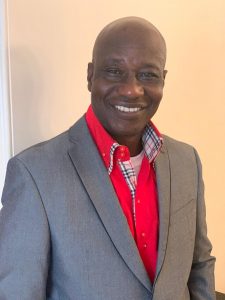September 18, 2020, by sustainablenottingham
The philosophy of life – Humanity living on the precipice
By Maxwell A. Ayamba – PhD Research Student in Black Studies, Department of American & Canadian Studies – Midlands4 Cities /Arts and Humanities Research Council
 Growing up in rural northern Ghana in West Africa, the concept of nature to us was bicentric not anthropogenic, we revered nature because as humans we are considered part of nature irrespective of skin colour or race for that matter – humans are thus written into the landscape.
Growing up in rural northern Ghana in West Africa, the concept of nature to us was bicentric not anthropogenic, we revered nature because as humans we are considered part of nature irrespective of skin colour or race for that matter – humans are thus written into the landscape.
However here in the UK, the presence of Black people in the British countryside landscape is an unwritten history and, not viewed as a policy concern, hence the prevailing narrative of the British countryside has always been a ‘white space’. This is despite the fact history tells us there have been Black presence in the British landscape dating back to the Roman and Tudor Times, while enslaved people have worked in stately homes and gardens now owned by the National Trust and Black soldiers have fought and died alongside the British army in the worlds wars.
Unfortunately, a review of literatures indicate that the issue of race, ecology and environmental justice in the UK has not received much attention as compared with the US, where much has been written about race and ecology, if you read W.E.B Du Bois and John Mur as well as native American authors Charles Eastman and Sarah Winnemucca. In fact, Joni Adamson a naturalist, on America Indian Literature, Environmental Justice and Ecocriticism once said, “those who are interested in building a more socially and environmentally just world must understand and critique Western forms of nature that talk about the split of humans from nature and the environmental and social concerns”. The environmental field unfortunately is rooted in a history of eugenics with white supremacy, and that has deliberately and systematically excluded Black people from nature and access to the countryside. Seeing Black faces in the British countryside is therefore regarded as out of place as the cities are where they belong despite that they have lived in Britain for centuries. The commodification of nature and therefore the countryside has also contributed to the countryside as a space of privilege. Unfortunately, the struggle of the working class during the mass trespass in 1932 to open the countryside for everyone has done very little to factor in race as a social concern.
This has led to some form of ‘informal social control’ in the rural country raising fears of racism both psychological and physical. Addressing the rural – urban divide through ending and repairing the damage of racism within the environmental field and the countryside however remains a step too far. The second challenge is removing the structures and systems that allow so called gatekeepers who are privileged and benefit from and perpetuate white supremacy through their actions or inactions, with a call for equity in countryside access through cultivating organisational cultures that value the contributions of Black people. This can only be done by educating people about the destructive nature of racism as a social construct within the history of the conservation movement and to discredit and challenge narratives about the theories of eugenics as inhuman and baseless. This is because historically, this prevailing notion has been normalised and internalised within the conservation and environmental movement as white people being the custodians of the natural world and this is acted upon in their conduct towards Black people.
Not only is access to the countryside and green space an environmental injustice and human rights issue, but also communities where Black people live in the UK are classed within areas of Multiple Deprivation Index with the worst air and noise pollution. These communities are those suffering disproportionately from impact of the Covid-19 pandemic as result of living in the most economically and environmentally deprived ecologies. But as the science will tell us, no one can escape from the spread of diseases since we all share a common space and interact through our daily facets of life in a shared natural environment. A healthy environment is a healthy people, however should a group of people be marginalised and deprived on the basis of their skin colour, economic status or class then we are indirectly creating a recipe for disaster, because as humans we are all interconnected in a web of life and nature is no respecter of persons as long as being mortal is concerned, as Covid-19 has shown. The policies and inactions on the part of Government has contributed to Black people living in ecologies where toxic waste and industrial processing plants and high volume of traffic are present. The poor air quality in cities such as Nottingham is largely experienced by those marginalised groups living in these heavily polluted zones and oblivious to the exposure as they are constantly pre-occupied in daily struggles of survival. Public health should be linked to access to green space and the countryside as a human right and not a luxury or the prerogative of the privileged class.
You can contact Maxwell via Maxwell.Ayamba@nottingham.ac.uk.
No comments yet, fill out a comment to be the first

Leave a Reply